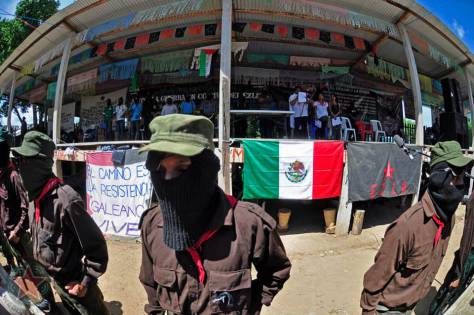At 1 a.m. on Monday 7 July, artillery bombardment shook Kunaftar Hill. When the shelling ceased, about 300 IS fighters that had crawled close in the cover of the night charged forward. Thirty-two fighters from YPG and YPJ took up positions inside and on top of a makeshift fortress, but they all went inside when their enemies edged closer. Crouching in narrow corridors, they kept firing from holes in the wall until the fortress was completely overrun.
From cleverly built “shelves” above the entrance, the defenders shot dead the first IS fighter that attempted to get in. Unable to force their way into the structure, IS fighters started throwing in hand grenades. One exploded next to 20-year-old Xemlîn, and the shock wave smashed her head against the concrete wall so she passed out. While tended to by her comrade Dicla, Xemlîn did not wake up again until after the battle was over.
Later an IS fighter screamed: ”Hand over your weapons! You are women, you cannot fight!” ”Do you want to go to paradise?” responded Dicla, “I will send you to hell!” The trapped defenders could now hear why the IS fighters went to get fuel – to burn them alive. The battle had been so drawn out, however, that the YPG and YPJ had had time to organize a counter-attack. They now charged up the hill from two sides, and at 8 a.m. had driven away the last attackers.
Two Kurdish fighters were killed this night. Şoreş was inside the fortress when he was shot through the eye, but continued firing his weapon until he was hit a second time. Mohamed fell when he charged up the hill: the survivors renamed it in his memory. After the battle, spotlights and rolls of barbed wire were placed around the outer perimeter. Despite these preparations, the fortress finally fell into IS hands last week, and the YPJ unit pulled back towards Kobanî town.
In countless battles, the mostly very young and poorly equipped fighters of YPG and YPJ have prevailed against the world’s most ruthless jihadist group. How is this possible?
There are a number of reasons. When trapped, YPG and YPJ fighters have no other option than victory or death. Knowing that IS will show them no mercy, they save the last bullet or hand grenade to kill themselves rather than be captured alive. Also their military training, although short in duration, is of a high standard. In combat, they act in a disciplined, coordinated fashion (unlike many other armed groups in Iraq and Syria, they aim before they shoot). They receive education along the lines of the secular left-wing ideology of Abdullah Öcalan, the imprisoned leader of the Kurdistan Workers’ Party (PKK). YPG and YPJ are not only fighting IS, but for their vision of a democratic society. Less openly pronounced, but perhaps more strongly felt, is the idea of the Kurdish nation.
Also, most fighters were born and brought up in the same area, where their units operate. Even those who come from elsewhere are bound by a sense of “in-group solidarity” with their ethnic kin. And since they usually remain in the same small unit over time, fighters develop strong bonds to their comrades. In social scientific research, this kind of “primary group cohesion” is often described as key to success on the battlefield.
Lastly, “martyrs” are certainly mourned and honoured, but fighters neither seek nor celebrate death. On the contrary, frontline troops maintain a tangible joyfulness and love of life, and are often seen singing and dancing together.
The forces of YPG and YPJ have had their boots on the ground for over two years. They have substantial “fighting power” but limited firepower, and are now facing an enemy with vastly superior resources of arms and armour at its disposal (some of which was captured from the Iraqi army, and originally supplied by the USA). Unless reinforcements, armaments and supporting air strikes arrive very soon, Kobanî looks doomed to fall to IS.





















